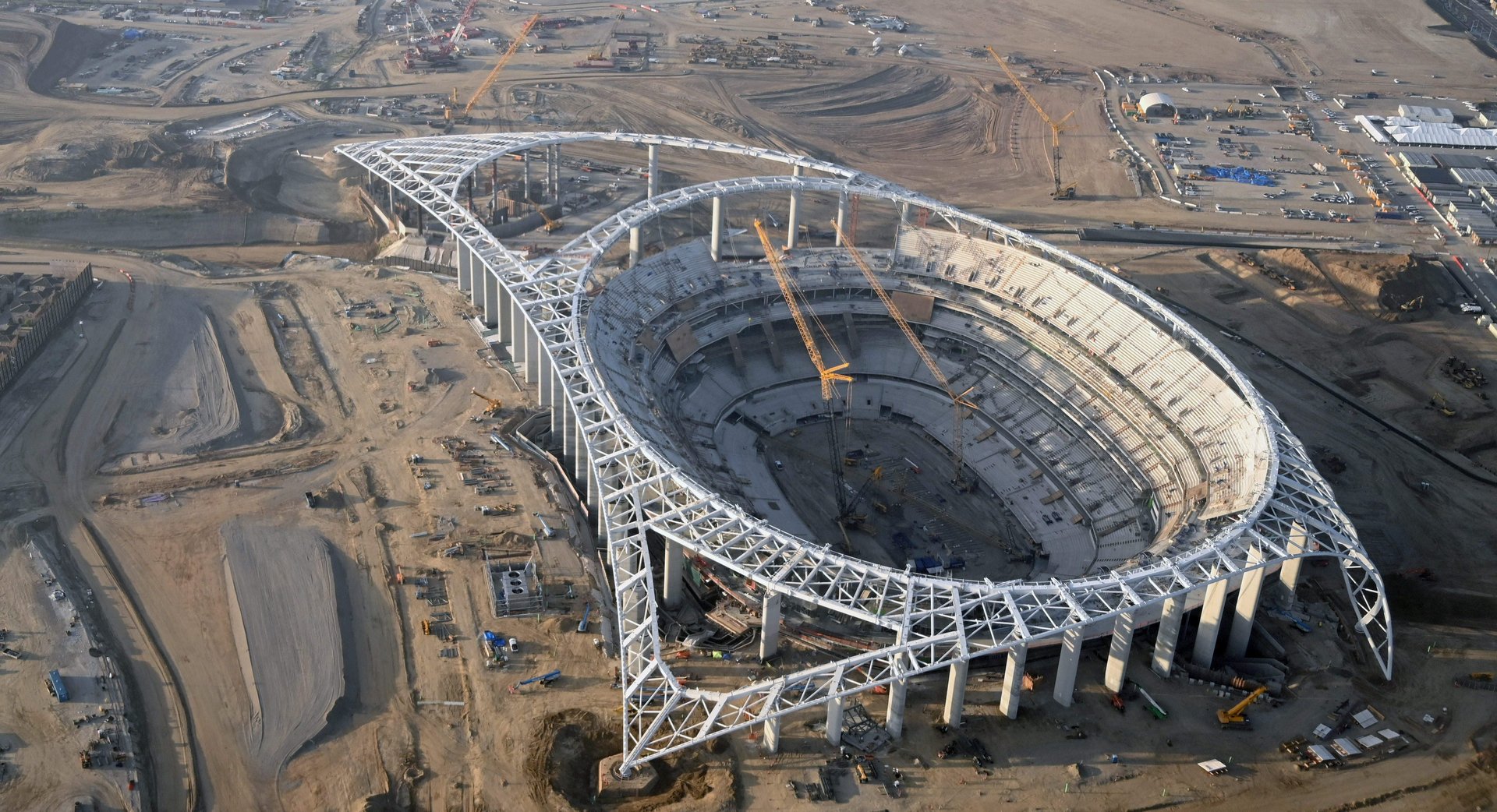SoFi spending $400 million to name an NFL stadium shows everything that’s wrong with student loans
You know what $400 million can buy? A complete college education for 2,000 students. Also, the naming rights to an NFL stadium.


You know what $400 million can buy? A complete college education for 2,000 students. Also, the naming rights to an NFL stadium.
SoFi, the largest provider of student-loan refinancing, is reportedly close to acquiring naming rights to a $5 billion sports venue under development in Inglewood, California. The deal is said to cost SoFi $400 million over 20 years, and the new stadium will serve as home to two NFL franchises—the Los Angeles Chargers and the Los Angeles Rams—when it opens in 2020. A spokesperson for SoFi would not confirm the deal.
For SoFi, the deal is about advertising and seemingly led to the departure of chief marketing officer Joanne Bradford. She had been with the company since 2015, but left “because of a disagreement over whether the Inglewood naming-rights deal was a good fit for the brand considering the investment,” according to sources who spoke to VenuesNow. Bradford could not be reached for comment through social media.
Here’s the thing: Bradford is right—and not just about brand strategy.
For companies, naming stadiums doesn’t pay off. In fact, according to Michael and Eva Leeds, a husband-wife team of economics professors, there is no lasting impact (paywall) on the profitability of companies that buy naming rights to stadiums. Of course, sports teams and advertising agencies would argue otherwise, suggesting that naming rights improve brand recognition and customer acquisition.
So why do companies keep paying for naming rights? Michael Leeds thinks naming stadiums might be a “guy thing.”
“If you can’t be an owner in the NFL … one of the things you can do is put your name on the place where an NFL team plays,” he explained in an interview with the Milwaukee Journal Sentinel. “Maybe not your personal name on it but you can put the company where you’re CEO … and you suddenly become kind of an insider in this very, very closed group.”
Anthony Noto, SoFi’s CEO, certainly fits the profile. A former linebacker at West Point, previously served as CFO for the NFL. He also made stacks of cash working for Goldman Sachs and Twitter along the way, but he’s probably not in a position to buy his own pro football team.
Superficially, the argument for SoFi’s naming rights seems reasonable—the LA stadium will host the Super Bowl in 2022 and the Olympics in 2028, garnering an enormous amount of exposure for SoFi. But fundamentally, this appears to be an ego trip. Given the enormous student loan burden facing Americans—there is $1.5 trillion in outstanding debt—it feels unseemly for a company getting rich off of student loan refinancing to splurge on such a shiny bauble. Why not instead offer better terms on refinanced student loans? The good will earned from grateful customers might prove to be more effective marketing.